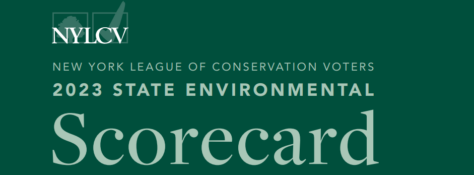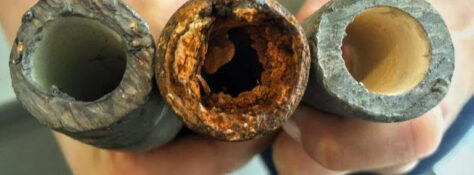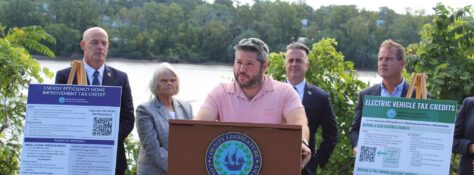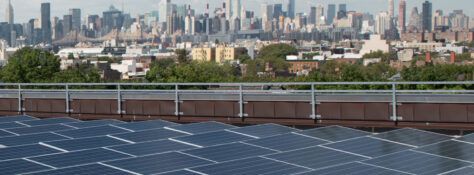The New York League of Conservation Voters (NYLCV) is pleased to present the 2023 New York State Environmental Scorecard, an annual evaluation of State Legislators based on their support – or lack of support – for environmental legislation. Voters have come to rely on the scorecard as an easy-to-understand ledger on state environmental policies and an effective tool for evaluating and holding their elected officials accountable. Legislative gains were made on geothermal energy development and safer and cleaner drinking water in the state. NYLCV applauds the State Senate for passing a clean fuel standard and the NY HEAT Act, calls on the full legislature to pass in 2024.
Learn MoreGovernor Hochul took a major step to get the lead out of New York’s drinking water by signing the Lead Pipe Right to Know Act (A.6115/S.5112). Sponsored by Assemblymember Amy Paulin and Senator Gustavo Rivera, the bill will make it easier for New Yorkers to find out if they have a lead pipe contaminating the drinking water in their home. It also gives policymakers more information about the scale of the threat to public health across the state. This greater transparency will help direct resources more effectively towards the replacement of all of New York’s lead pipes.
Learn MoreThe NYLCV family is deeply saddened to learn of the passing of Matthew Peter. Over the course of the last
Learn MoreThe City Council took a big step in the fight against climate change today by passing the City of Yes for Carbon Neutrality (COYCN) zoning amendment, a top NYLCV priority. Simplifying the process to implement green technologies and retrofit buildings for clean energy solutions will mean fewer emissions and it is absolutely essential to meeting the city’s ambitious climate goals. Since the majority of the City’s greenhouse gas emissions come from buildings, COYCN will help us move away from fossil fuels and ultimately improve the City’s air quality, a longstanding environmental justice issue. We applaud Mayor Adams, DCP Director Dan Garodnick and the City Council for coming together to get this climate friendly measure over the finish line.
Learn MoreIt’s time for New York to throttle-up on large-scale renewable energy projects.
Last week, the New York State Energy Research and Development Authority released the RFPs for a new round of expedited solicitations for offshore wind and land-based renewable energy projects. The solicitation was first announced by Governor Kathy Hochul on November 16. These new solicitations will help New York reach the goals mandated in the Climate Leadership and Community Protection Act (CLCPA), the most progressive climate law in the nation. The CLCPA commits New York to producing 70 percent of its electricity through renewable energy by 2030 and 100 percent of its electricity, known as zero-net emissions, by 2040.
Learn MoreBy Peter Aronson If you step back and look at all the battles we fight to preserve our environment and
Learn MoreNYLCV) is urging Gov. Kathy Hochul to sign two bills; one will further protect New York’s waterways and help keep the state’s drinking water safe, and the other will help our state end its dependence on fossil fuels. These two bills have been passed by the New York State Legislature and await the governor’s signature. The first bill, A. 6652/S. 4162, known as the Class C Streams bill, is designed to protect New York’s streams by putting them under the supervision of the state’s Department of Environmental Protection. This is crucial to shoring up the state’s natural resilience against the impacts of climate change as well as protecting our water supply. The second bill, A. 5052/S. 4830, would amend the public authorities and public service laws to require the development of a highway and depot charging action plan for electric vehicles to meet the state’s clean transportation goals.
Learn MoreThe New York League of Conservation Voters (NYLCV) is deeply disappointed in the budget cuts announced by Mayor Adams yesterday. The November Financial Plan Update for FY24 cuts nearly 300 Parks positions and—in what amounts to a big fat meal for the rat population—it eliminates city funding for community composting programs, cancels a temporary build-out site for the LES Ecology Center’s composting operation, delays the expansion of the citywide residential organics program to Staten Island and the Bronx—a borough too often neglected—and more.
Learn More



